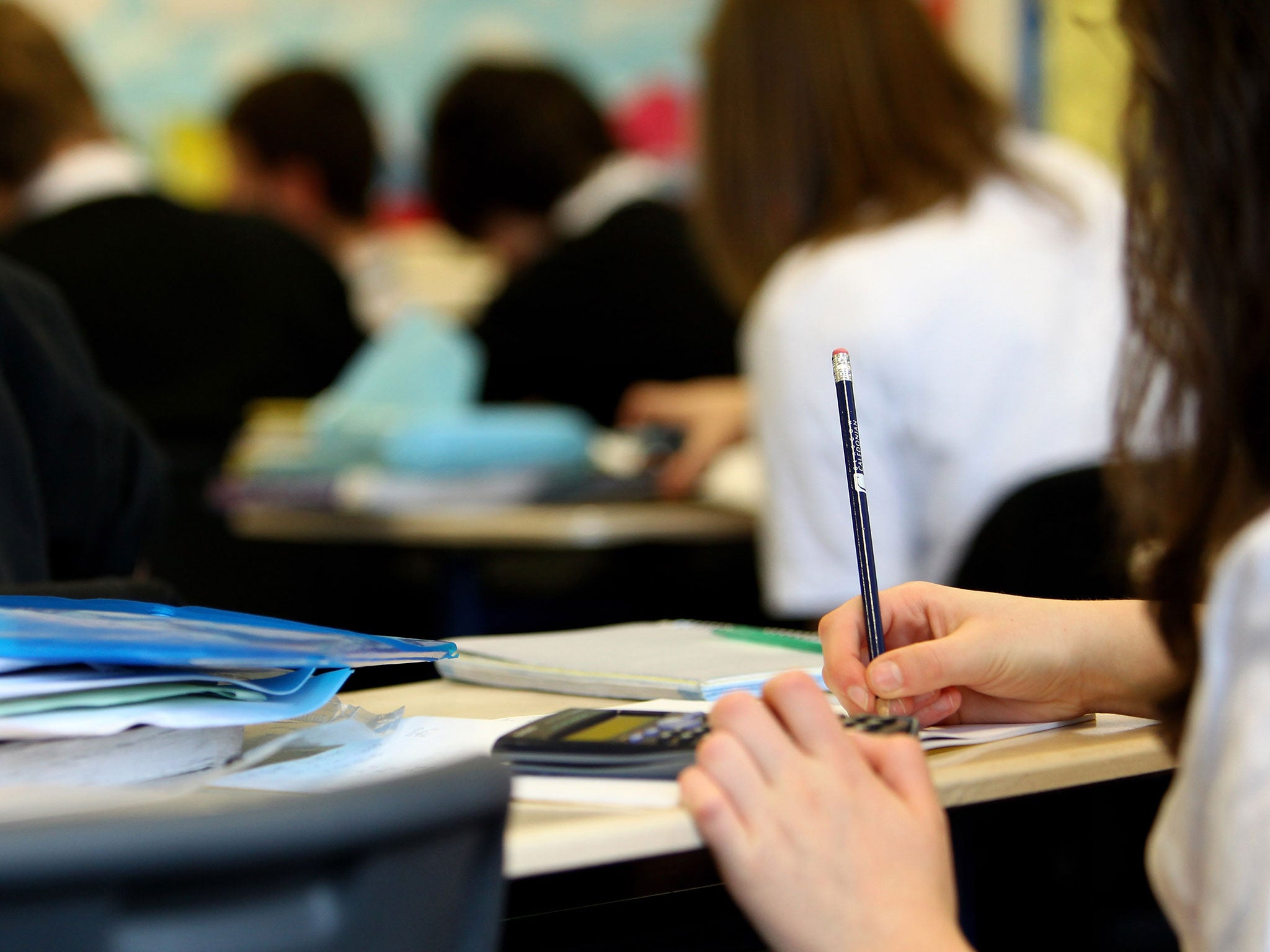The depressing advice given to parents unhappy with their children's school offers? Move away
Last year, 84,000 pupils did not get their preferred choice, and this year the figure is reported to be as high as 90,000


National Offer Day, the moment when over half a million pupils find out if they have the secondary school place of their choice, is an excellent opportunity for the Government to play one of its favourite games: Let’s Be Disingenuous With Statistics. So, the Department for Education says that 95 per cent of families will have received a place at one of their top three schools. If 95 per cent were an exam mark, you’d be beside yourself with delight. But we may as well rename National Offer Day as “Dodgy Data Day”, because the Government’s figures do not tell the real story of the agony in tens of thousands of homes nationwide.
First, the concept of “top three choices” is misleading, because in many cases there are not three good schools locally where you would want to send your child – let alone the six that parents are asked to list as their “choices”, in this loosest definition of the word. I know families for whom there is a gulf between school numbers one and two – the top choice is the over-subscribed, outstanding-rated school a not-too-far distance away, and the second is just a little bit short of fine. Last year it was 84 per cent of pupils who received their first choice of school; that figure, not the Government’s 95 per cent, is the relevant one.
Second, while that remaining 16 per cent who didn’t get their first choice is a small proportion, it’s still a lot of families. Last year, 84,000 pupils did not get their preferred choice, and this year the figure is reported to be as high as 90,000.
In this sense, statistics cease to matter because any child denied a good state education – or put through the emotional upheaval of missing out on their preferred choice – is a travesty in a country as rich as ours. But nevertheless, 90,000 is a staggering amount. A secondary education can make or break a child’s life. It is far too serious to be dismissed by ministers shielding themselves with misleading statistics.
Third, the DfE says it has spent £5bn on creating half a million new places since 2010, and will spend another £7bn on creating more over the next parliament. Again, big numbers. So why is there still such a pressure on places?
The rising population of soon to be secondary school age children is driving this pressure, as a result of increased immigration and a post-millennium baby boom. But that is only half the story. These are two major factors the Government should have seen coming, yet have failed to prepare for.
Education policy of the past six years has not been fit for our age, despite the laudable stated intentions of Michael Gove, the architect of the policy, to create a decent education for every child of whatever background. The demographic challenge needs an education system driven by supply; instead it has created one tied up by ideological dogma.
Let me be clear: I am not against academies, started under Tony Blair, or against free schools, the brainchild of Gove. The majority of these new institutions are good schools for those children lucky enough to get a place. The problem lies in the political obsession of this Government with giving so much freedom to academies and free schools that local authorities are powerless to create new school places, even where they are desperately needed. A policy that pretends to be decentralising is the most centralised of all, because it is politically driven.
Academies can – and do – refuse requests by councils to expand to take more pupils, no matter what the local pressures are. Local authorities are also restricted in the creation of new schools, which have to be academies. Communities with a shortage of places are reliant on a free school being set up, yet they do not have to be built in areas where there is the highest demand.
It is depressing to hear people such as Bernadette John, of the Good Schools Guide, who told the BBC Radio 4 Today programme yesterday morning that families who are not happy with their offer could move to other parts of the country, as if this were choosing a different place to go on holiday.
The supply issue is partly to do with teacher shortages, which is a problem in northern cities, and if this Government were serious about its Northern Powerhouse agenda then it should incentivise teachers to work in schools that need them.
But it should not be for families to shoulder the burden of a narrow-minded, dogmatic and hidebound education policy.



Join our commenting forum
Join thought-provoking conversations, follow other Independent readers and see their replies